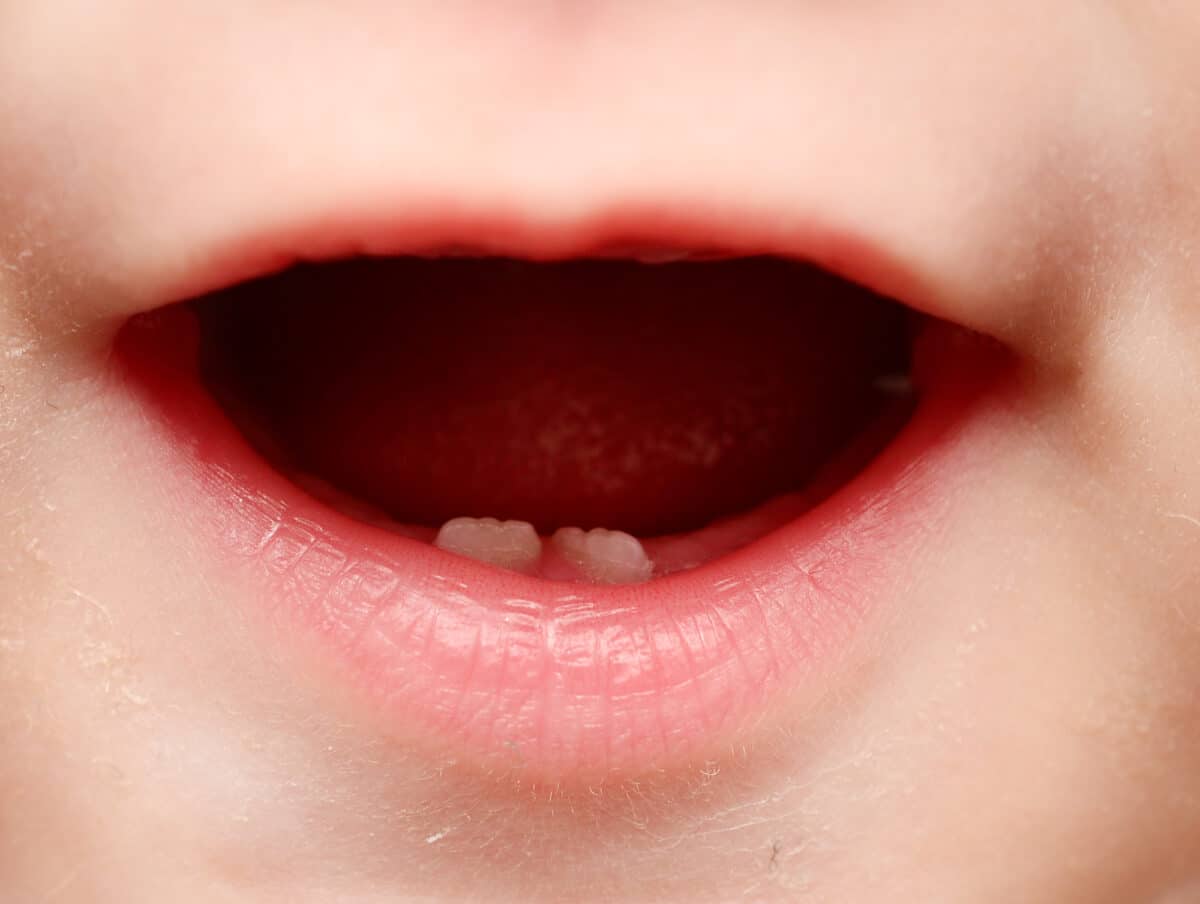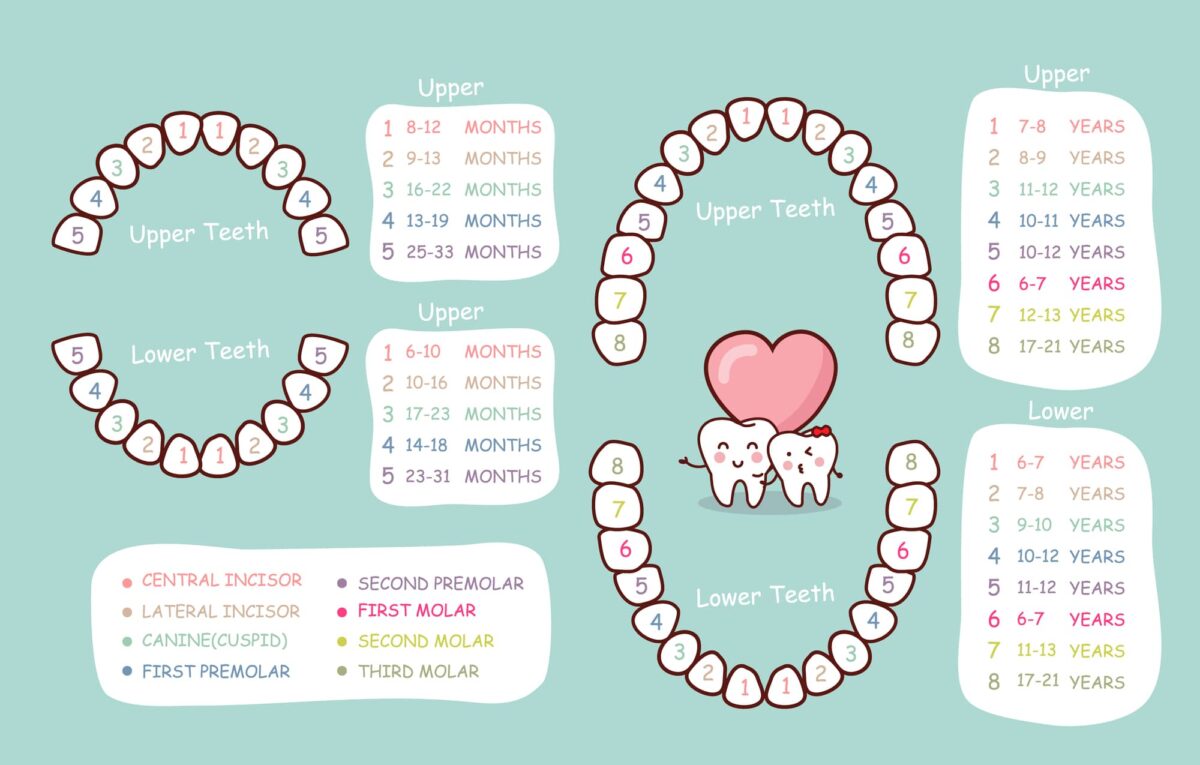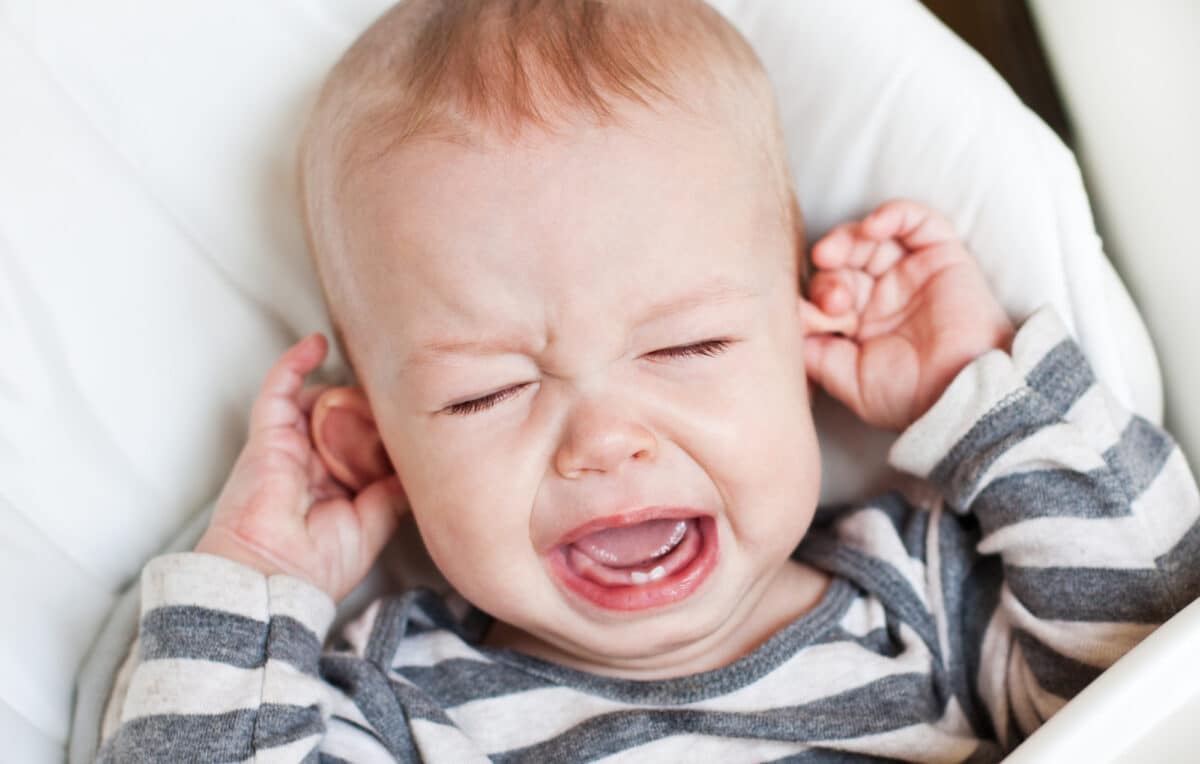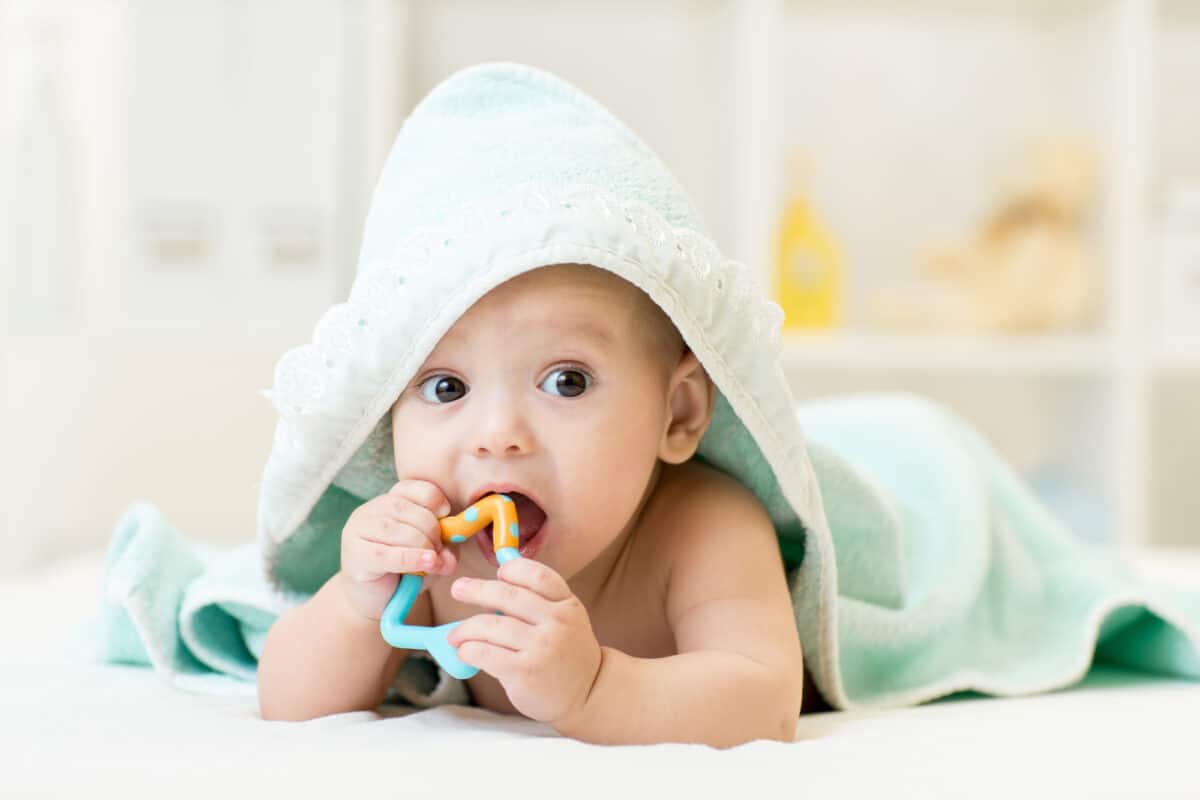How Long Does Teething Last?

You and your baby are both miserable.
How long does teething last, anyway?
Your baby’s first tooth is a moment worth celebrating…and dreading.
Between the drooling, whining, and sleepless nights, you’re probably asking yourself (and every experienced parent in a three-mile radius), “How long does teething last?”
Guiding an infant through their first year of life can be a daunting task. But Kid Care Pediatrics is here to help!
In this article, we’ll answer some of your teething questions, such as “When do babies start teething?” “How long does teething last?” and most importantly, “How can I relieve my baby’s teething symptoms?”
Q: How Long Does Teething Last?
A: How long your baby is experiencing symptoms of teething can vary, but in general you can expect teething to last for about a week—a few days before the tooth erupts from the gums and a few days afterward. This might not sound like a long time, but it can feel like it, especially if multiple teeth arrive in quick succession.
As for the entire teething process? That takes a lot longer.
Your child will probably have a full set of baby teeth (including premolars) by 3 years of age. As they approach elementary school age, your child will start losing these teeth in roughly the same order that they first emerged.
Q: When Does Teething Start?
A: Teething typically begins around 6 months of age; however, the onset can vary among infants. Some babies may start teething as early as 3 months, while others might not see their first tooth until after their first birthday.
The initial teeth to emerge (milk teeth) are usually the lower central incisors, followed by the upper central incisors. If your child hasn’t begun teething by 18 months, it’s advisable to consult your pediatrician.
Q: What Are the Most Common Symptoms of Teething?
A: Some babies will sail through teething with hardly a whimper, while others make their discomfort known to everyone around them.
Common teething symptoms include:
Drooling
Teething causes your baby’s mouth to produce more saliva than usual, leading to a lot (and we mean a lot) of drooling. Some babies may even develop a scary looking (albeit harmless) teething rash on their chin or chest from being so wet all the time.
Excess saliva in the mouth can also cause your baby to cough or even gag. Stock up on plenty of bibs.
Biting & Chewing
New teeth poking through the gums can be irritating and cause sore gums. The easiest way to give the area a nice massage is by biting…on everything in sight. Depending on the position of the tooth, some babies may even pull on their ear or rub their cheek when a new tooth is coming in.
Whining/Fussiness
If you’ve asked yourself ‘How do I stop my baby from crying‘ then they might be teething. A teething baby is usually a fussy baby. Although adults don’t remember it, teething can be painful on those sore gums, which can leave your baby feeling fussy and out-of-sorts.
The suction caused by nursing or bottle feeding can make the pain worse, so don’t be surprised if your little one suddenly seems to lose their appetite.
Drinking or Eating More
When babies are in pain or uncomfortable you may find one of two scenarios. They will either increase their baby formula or breast milk intake, or completely refuse to eat all together. Neither one should worry parents (but keep an eye on their wet/dirty diapers just in case). If you have an older teething baby they may want to chew on things like puffs to soothe their teething gums. As long as they’re getting the proper nutrition most of the time, there’s no need to worry about this blip during teething.
Q.How Long Does Teething Pain Last?
A: Unfortunately, teething pain begins before we see evidence of those cute little teeth popping through. Baby gums before teeth erupt may develop a small bubble or swollen area. This will be tender to the touch. As the teeth cut through your baby may be more irritable, drooly, and fussy.
After the teeth cut through, the fussiness and pain should begin to resolve.
Q. When Does Teething Stop?
A: Most people think of teething as an infant’s right of passage but the teething process actually lasts a lot longer than infancy.
Your child will actively teeth (with breaks in between) from around 4-6 months to about 2 to 3 years old. After this they will have a break and erupt another set of molars around age 6. Then, the final set of molars will come in around age 12.
Q: Does Teething Cause a Fever?
A: Sorry, Grandma, but the story about teething causing fever, diarrhea, diaper rash, or a runny nose is an old wives’ tale.
Teething typically starts at roughly the same time as your baby’s immunity begins to wane, so it’s not uncommon for your baby to catch a virus at the same time they are getting a new tooth. But the fact that these symptoms are showing up together is merely a coincidence. And remember, if your newborn has a fever, don’t chalk it up to teething. Call their pediatrician.
If your baby is experiencing any cold or flu symptoms, bring them into our office (or your local pediatrician).
Q: Which Teething Remedies Work?
A: It’s always hard to see your baby suffering, even if that suffering will one day allow them to eat pizza.
Teething rashes can be treated by keeping their skin dry and applying a small amount of Vaseline (petroleum jelly) to protect the skin. Stick with 100% petroleum jelly with no additives, as this is the safest option for their sensitive skin.
If your baby is chewing on everything in sight, make sure to have plenty of safe teething toys on hand. Nowadays, teethers are made out of nearly every kind of material, but it’s best to avoid hard plastic, as this can be too harsh on their sensitive gums. Silicone and rubber options are best. And remember, since babies are chewing on ‘all the things’ be wary of choking hazards!
To relieve pain and inflammation in the gums, offer them something cold (but not frozen!) to chew on. If your little one loves refrigerated teething rings, make sure they’re filled with nothing but distilled water. If the teething ring is punctured or cracked, you don’t want to worry about toxic materials.
If your child is truly miserable, ask your pediatrician about giving them a small dose of Tylenol or Motrin to relieve their pain (and help them get to sleep). Do NOT use any topical products with benzocaine or homeopathic tablets containing belladonna, as these are highly dangerous for babies.
And those amber teething necklaces? Those are a no-go as well. Not only are they a strangulation hazard, those beads could cause choking if the necklace is broken.
Q: Should I Brush My Baby’s Teeth?
A: Yes! As soon as the first tooth is visible, you can begin brushing after meals and at bedtime.
While your baby will lose these teeth in a few years, brushing now will get them used to having their teeth brushed (and set a precedent for good dental hygiene).
Q: Should I Take My Baby To a Pediatric Dentist?
A: Dentists encourage parents to bring their children 6 months after their teeth start coming in. Usually, the first dentist appointment will happen by 2 years of age.
While s/he might not be eating taffy and lollipops that early, your baby can still get cavities. A good pediatric dentist can spot issues early on and keep an eye on your child’s oral development.
Helping Your Baby Through Teething
Teething might feel like an eternal process, but we can promise you that it will end. In fact, over the next five years, you’ll go from, “How long does teething last?” to “You lost your first tooth already?!”
Luckily, Kid Care Pediatrics will be there for you at every step along the way. Call us for an appointment and we’ll point you and your baby into the direction of relief.
Kid Care Pediatrics
Kid Care Pediatrics has been in existence since October 2001. It was established by Omar A. Gomez, M.D. The practice philosophy at Kid Care Pediatrics is to provide quality pediatric medical care for children in a professional yet caring manner.



